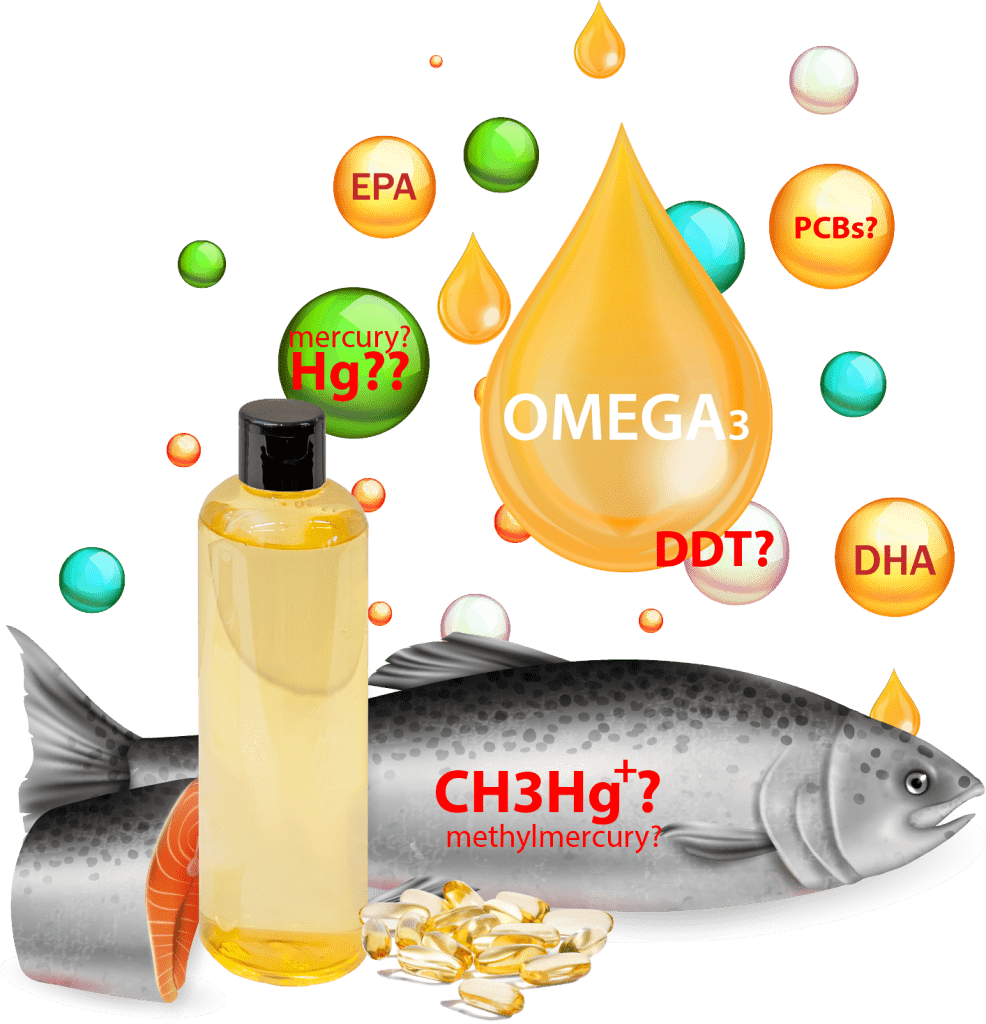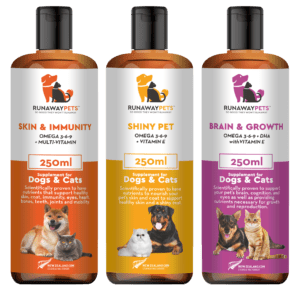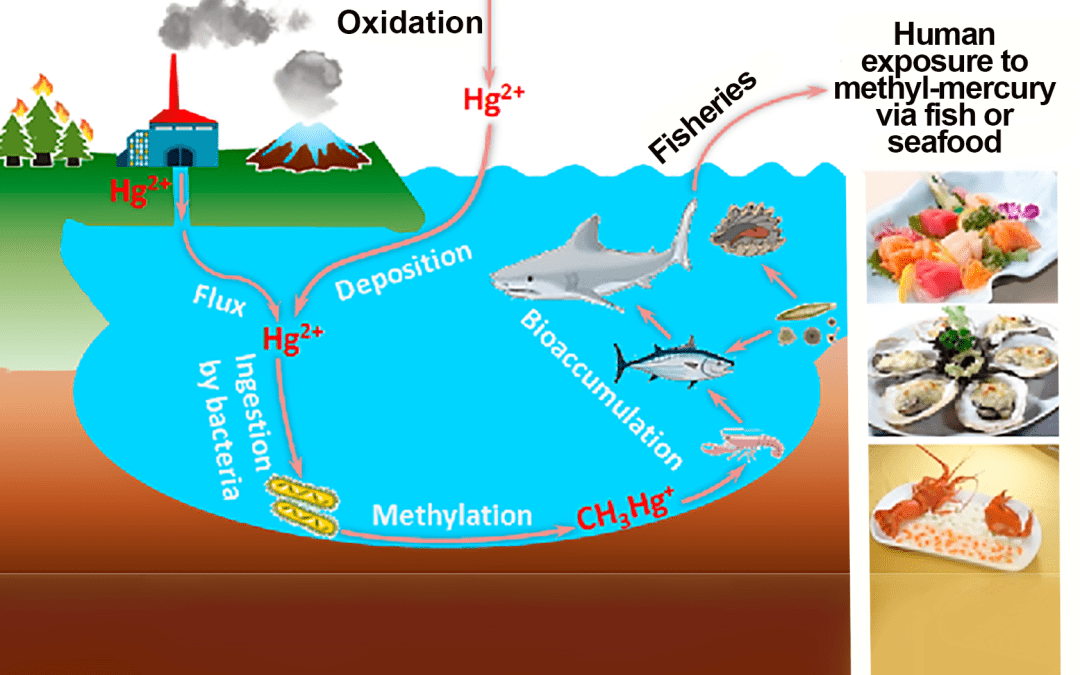When you’ve opted for fish/krill oil have you ever considered that marine-based products with their potential for mercury, arsenic and other contaminsnts aren’t required to be tested? By this we mean: although likely safe, there’s no pre-approval process or regulatory body that ensures fish-based oil producers are testing their oils for contaminants that may have seeped into the fish or the oil after extraction. It’s all done voluntarily i.e., fish oil producers don’t have to test if they don’t want to, can’t afford to, or for no other reason than because they just don’t have to! Our products are grown locally, non-GMO and chemical-residue free, and produced in our own purpose-built production facility.
What does a lack of testing mean for you and your pet?
There is the potential for adverse health outcomes if the product you or your pet consumes isn’t from a reputable brand that guarantees that each batch is tested. These can include alterations to the functioning of the nervous, digestive and immune systems, Let’s step back a bit and find out how contaminants and toxins get into the fish and subsequently the oil product.
How do contaminants get into the fish?
Contaminants, like the poisonous heavy metal, mercury, can be transported into our waterways from volcanic eruptions, forest fires, and the burning of fossil fuels and waste. Residual pesticides like DDT (dichlorodiphenyltrichloroethene) can also leech into water sources contaminating the marine environment. These toxins are absorbed by smaller fish and shellfish where they bioaccumulate and concentrate overtime and, in the case of mercury, get converted to highly toxic methylmercury which is a powerful neurotoxin.
Mackerel, Trout, and Herring
Larger fish like Mackerel, Trout and Herring are harvested for their higher Omega-3 content. These larger fish eat thousands of the smaller mercury-containing fish and subsequently absorb all the accumulated mercury into their bodies as well. When these larger fish are processed for their meat or oil, the mercury and other contaminants comes along too.
Testing can show contaminants in fish oil as low or at ‘safe’ levels and may appear insignificant, however, chronic exposure may result in long-term health complications.

Studies show that even small amounts of mercury can cause serious health problems affecting the lungs, kidneys, eyes and skin, as well as the nervous, digestive and immune systems. And you have to remember that not all companies test, as you’ll see below, so can you be sure that the fish oil you or your pet is consuming is even at the ‘safe’ levels?
Those companies that are failing at providing ‘safe’ fish oil.
A recent study carried out by the Hong Kong Consumer Council on 25 fish oil products sold in-market, detected contaminants in the majority of the test products, with some even exceeding the upper safety limit of EU standards. These products were from US, Canada, Japan, Australia, China, Malaysia, Norway and an ‘unknown’ origin. Some samples also had a higher content of “bad fatty acids” (the short-chain fatty acids (SCFAs) that can contribute to increased cholesterol) and contaminants that not only exceed the upper limit but also have the potential to increase the adverse health outcomes with long-term consumption. The sample with the highest SCFAs content sat at 34.5%. This means, that supposedly ‘healthy’ capsule being consumed, over a third of its contents/ingredients is actually unhealthy and contributes to poor health outcomes.
Not altogether a healthy capsule then.
And don’t forget, these products are all easily available off the shelf. How do you know what you’re actually putting into your body? Or your pet’s body?
If there isn’t a testing requisite for fish oil for human consumption and testing is done on a voluntary basis, would there be much incentive for producers to test their product if it was only produced for animals?

Some of the 25 products tested also stated on them ‘suitable’ for children and babies or suitable for pregnant and breastfeeding women. In fact, ALL samples specific to pregnant women or children had carcinogenic contaminants detected in them.
Aside from contaminants, there were also descrepancies in the amount of EPA and DHA that was claimed on the label as being in each capsule. One company showed an 83% difference between actual amount of DHA in each capsule and what was stated on the label. In another: a 73% discrepancy. While yet another showed an almost 32% lower amount of EPA than its labelled value. Again don’t forget, these products are all touted as ‘healthy’ and easily available off the shelf. How do you know what you’re actually putting into your body? Or your pet’s body?
As a result of these studies, Hong Kong’s food safety authority, the Centre for Food Safety (CFS), conducted its own test on five products from the US, Japan, and Canada. These were all found to either contain excessive preservatives, or genotoxic carginogens, or showed levels of ingredients not consistent with what was listed on the label. Shockingly, these were mostly supplements dedicated for pregnant women or for children. Subsequently, these products were all removed from shelves.
What does all this have to do with pet supplements?
Well, if the products touted as being safe for human consumption really aren’t, and aren’t always tested for contaminants, how vigilant do you think manufacturers are for contaminants, toxins and the SCFAs ratios within supplements designed for pet consumption? Especially when it’s an unregulated market?
Do you really know where your fish oil has come from? Have you been made aware of the potential for high mercury levels and other contaminants being present? These are very pertinant questions you should be asking – if you wouldn’t consume products like these without research, should you give them to your pet?
Here at Runaway Pets, we know our flaxseed oil is traceable all the way back to the farm – even the specific paddock its seeds came from!
- The whole journey: we know the whole journey from the seed right through to the bottle the oil goes in.
- Our own research labs: we have our own research labs so we know exactly the quality of seeds being planted.
- Our own purpose-built factory: we have our own factory so we know our seeds are treated exactly the right way to extract the oil without reducing the quality of nutrients.
- We test: we know we also get each batch independently tested by an external testing lab.
Now you know all this too. And, now you also know you can be 100% certain of the quality of product that you’re giving your pets.
That is the most assurance you could ever get. But if you need a little bit more, these are five other reasons to opt for flaxseed oil for your pets:
- Sustainable: Flaxseed oil in comparison to marine-based products has the distinct advantage of being more sustainable. Large-scale fish oil production for both the human and pet supplement/food markets is not environmentally sustainable long-term and are depleting the oceans supplies and eco-systems.
- Weight Management: Flaxseed oil is a good source of healthy fats and is lower in calories compared to fish oil making it a suitable supplement for dogs on weight management plans. Because fish oil is calorie-dense, excessive consumption can contribute to weight gain in dogs – especially if not adequately adjusted for in their overall diet.
- Lower Risk of Contaminants: Our flaxseed oil is chemical residue free and uncontaminated – we back this up by rigoursly testing each batch of oil. Fish oil, on the otherhand, is more likely to contain environmental contaminants such as mercury, PCBs, dioxins, arsenic and 3-MCPD (a byproduct of the process of creating a refined fish oil) especially if not properly sourced or purified. How do you know if the fish oil your or your pet is taking has been properly tested and purified?
- Allergen-Friendly: For dogs with known fish allergies or sensitivities, flaxseed oil provides a viable alternative to fish oil supplementation without triggering allergic reactions and providing them with their much needed omega-3s. Our Brain & Growth product even has the addition of DHA to give an extra boost of nutrients particularly in the developmental stages of growth.
- Balanced Fatty Acid Ratio: Fish oil is rich in omega-3 fatty acids but low in omega-6 fatty acids. An imbalance between these essential fatty acids can have negative effects on overall health and promote inflammation. As seen above too, some fish oil supplements also can contain an excessive amount of short-chain fatty acids which can adversely affect your pet’s health.
Give your pet the best – FREE of contaminants and chemicals with Runaway Pets nutritional supplements to support your pet’s >>

- IMMUNITY
- SKIN
- BRAIN
- DEVELOPMENT
- GROWTH
- EYES
- HEART
- & COAT
References:
https://www.scientificamerican.com/article/how-does-mercury-get-into/
https://www.sciencedirect.com/science/article/abs/pii/B9780124105270000363
Image credit: Deng, L., Li, Y., Yan, X., Xiao, J., Ma, C., Zheng, J., Liu, S., & Yang, R. (2015). Ultrasensitive and highly selective detection of bioaccumulation of methyl-mercury in fish samples via Ag⁰/Hg⁰ amalgamation. Analytical chemistry, 87 4, 2452-8 .
https://www.medsafe.govt.nz/regulatory/dietarysupplements/regulation.asp



See what others say